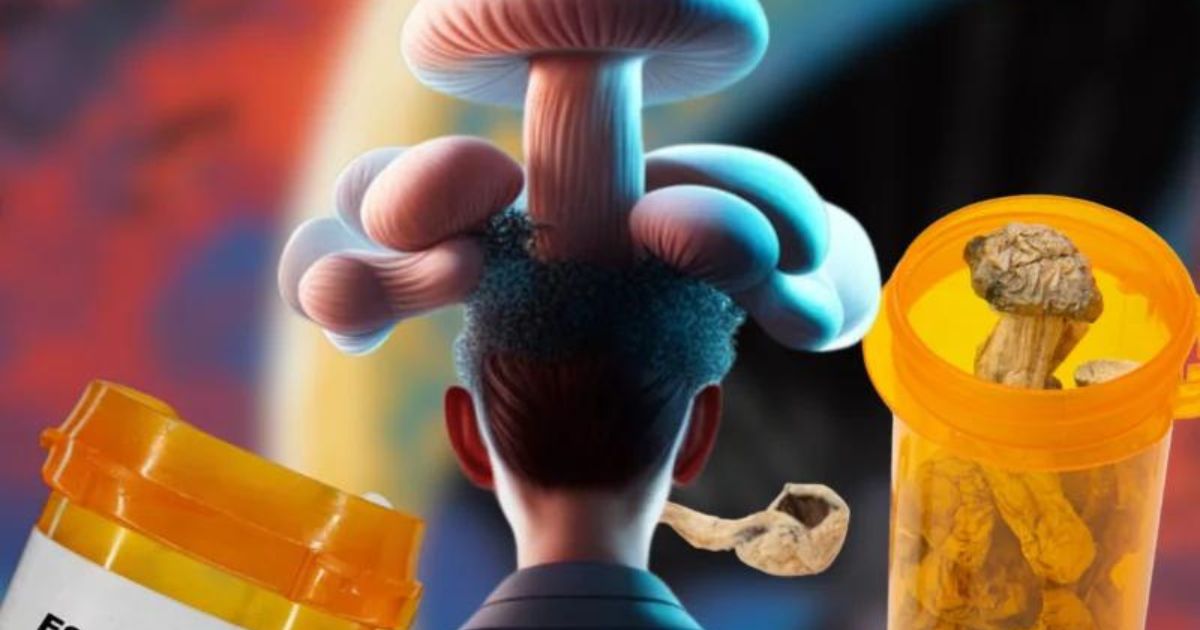A recent study published by the Cambridge University Press in June has shed light on Psilocybin And Escitalopram and their comparative effects on depression, offering insights into their efficacy in addressing one of the most pressing psychological issues of our time.
The search for effective treatments for depression continues, and researchers are delving into the potential of two distinct compounds: psilocybin, a psychedelic substance largely classified as illegal, and escitalopram, a commonly prescribed SSRI.
Psilocybin, derived from certain types of mushrooms, remains illegal in most parts of the United States due to its psychoactive properties.
In contrast, escitalopram belongs to the class of SSRIs (Selective Serotonin Reuptake Inhibitors), frequently used for treating depression and anxiety disorders. The stark differences between these two compounds have raised questions about their relative effectiveness in alleviating depressive symptoms.
Promising Findings From The Study To Know The Effects Of Depression
The study in question examined the outcomes of utilizing psilocybin and escitalopram as treatments for depression. While psilocybin displayed a more robust antidepressant response compared to escitalopram, the superiority wasn’t substantial.
The researchers noted that psilocybin treatment led to decreases in neuroticism, introversion, disagreeableness, and impulsivity, whereas escitalopram treatment resulted in decreases in neuroticism, disagreeableness, and impulsivity.
However, in terms of the magnitude of response, there were no significant differences between the two therapies.
The research involved 59 participants who had been diagnosed with moderate-to-severe major depression. These individuals were part of a phase 2, double-blind, randomized, active comparator-controlled trial.
The participants were divided into two groups: the psilocybin treatment (PT) group, consisting of 30 individuals, and the escitalopram treatment (ET) group, which included 29 individuals.
Both treatment groups received additional psychological support, encompassing psychoeducation, therapeutic alliance-building, and a form of Acceptance and Commitment Therapy.
The study’s outcomes point to the potential of psilocybin as a potent tool in the arsenal against depression.
While the psychedelic compound exhibited a slightly more pronounced impact on certain personality traits, the lack of a significant difference in overall response magnitude raises questions about its potential superiority over traditional SSRI treatment like escitalopram.
The findings also underline the complexity of treating depression and the need for multifaceted approaches that include not only pharmacological interventions but also psychological support and therapy.
The inclusion of these components in both treatment approaches highlights a growing acknowledgment of the interconnected nature of mental health and the necessity of addressing it holistically.
As research into alternative and unconventional treatments for depression expands, it’s crucial to maintain a nuanced perspective.
The study provides valuable insights, but its limited scope and the legal status of psilocybin warrant further investigation. Additionally, the study did not delve into long-term effects or sustainability of the observed improvements.
In the ever-evolving landscape of mental health treatment, the study comparing psilocybin and escitalopram marks a significant step forward. It opens avenues for exploring innovative approaches to tackle the pervasive issue of depression.
While psilocybin’s potential is evident, its journey from controlled substance to regulated therapeutic tool requires careful consideration, rigorous research, and a comprehensive understanding of its benefits and risks.
As scientists continue to untangle the complexities of mental health treatment, this study serves as a reminder that the quest for effective solutions is both vital and ongoing.






















